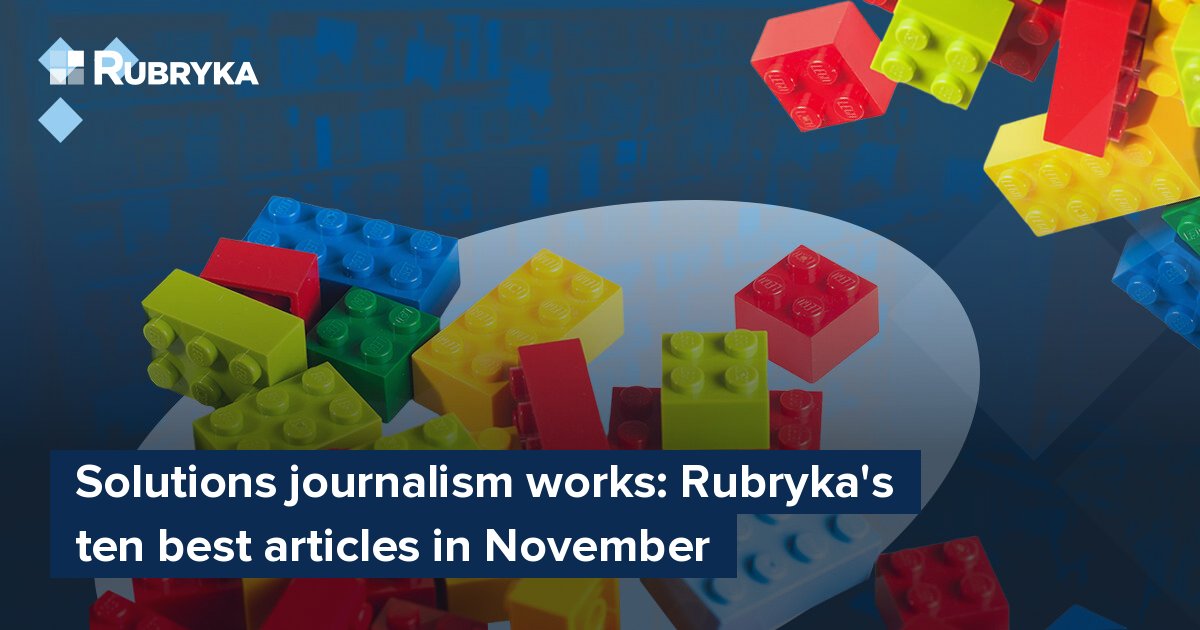
"Here, everyone is family"
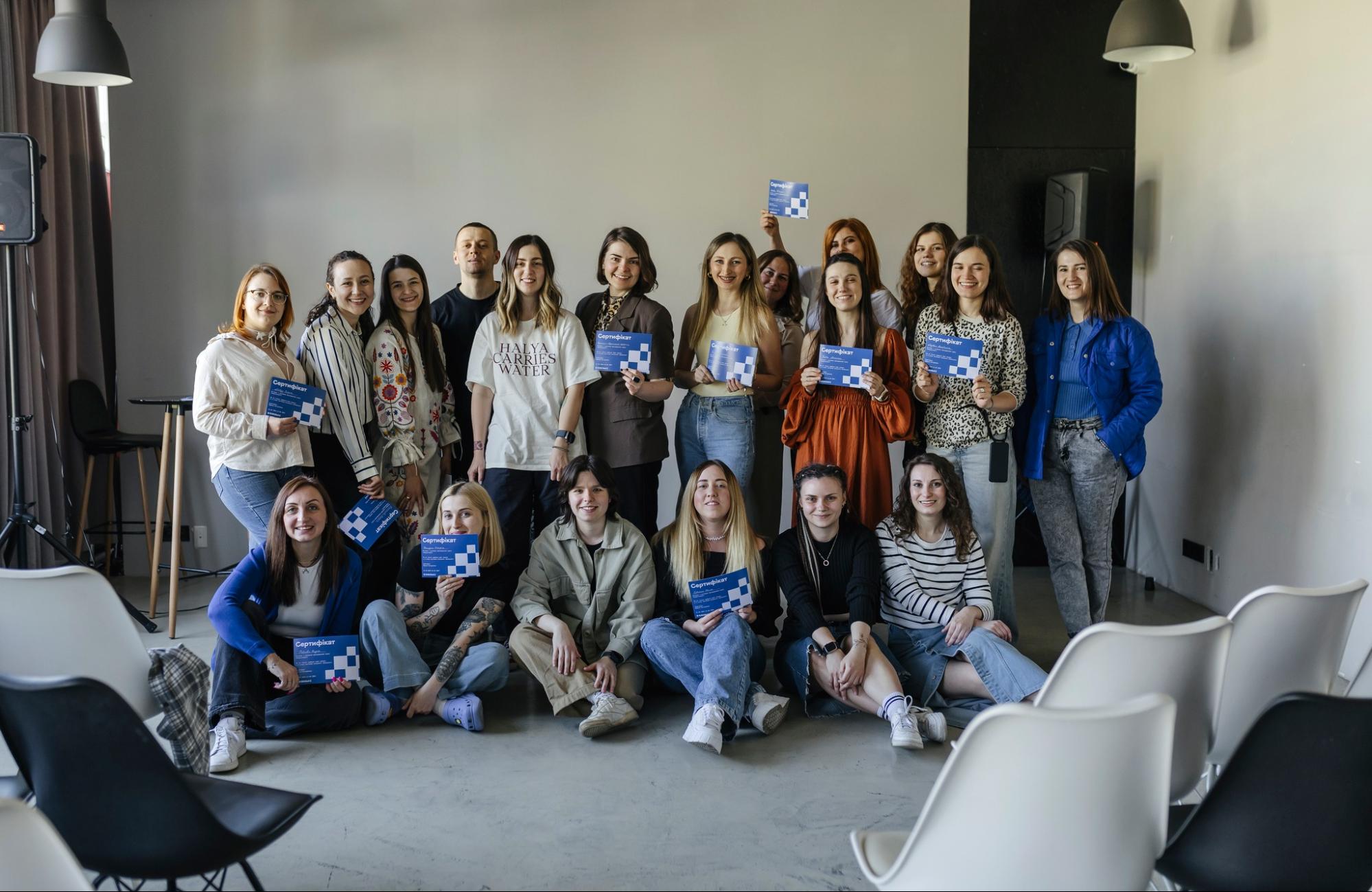
Graduation of the communications course for the Blyzki project, Kyiv. Photo from the project's archive
"In our society, there's a clear divide between civilians and soldiers, but then there's us — their families. We're somewhere in the middle, often overlooked," says Taisia, the wife of a Ukrainian volunteer fighter.
Taisia shares that, for a long time, no one around her was in any way connected to the military, leaving her feeling unsupported. So, like many others close to service members, she searched for like-minded people — those with similar values and experiences — with whom she could feel comfortable — people who understood, didn't ask inappropriate questions, and, most importantly, didn't put pressure on her.
In a psychological support group for military families, Taisia learned about the Blyzki educational project—a place where the loved ones of soldiers and veterans can find not only a community of "their own people" but also support in professional development. Here, they can discover their calling, build CVs, get ready for job interviews, acquire new skills, and take relevant courses. Rubryka explains how this safe space works for military families.
Searching for meaning and building community
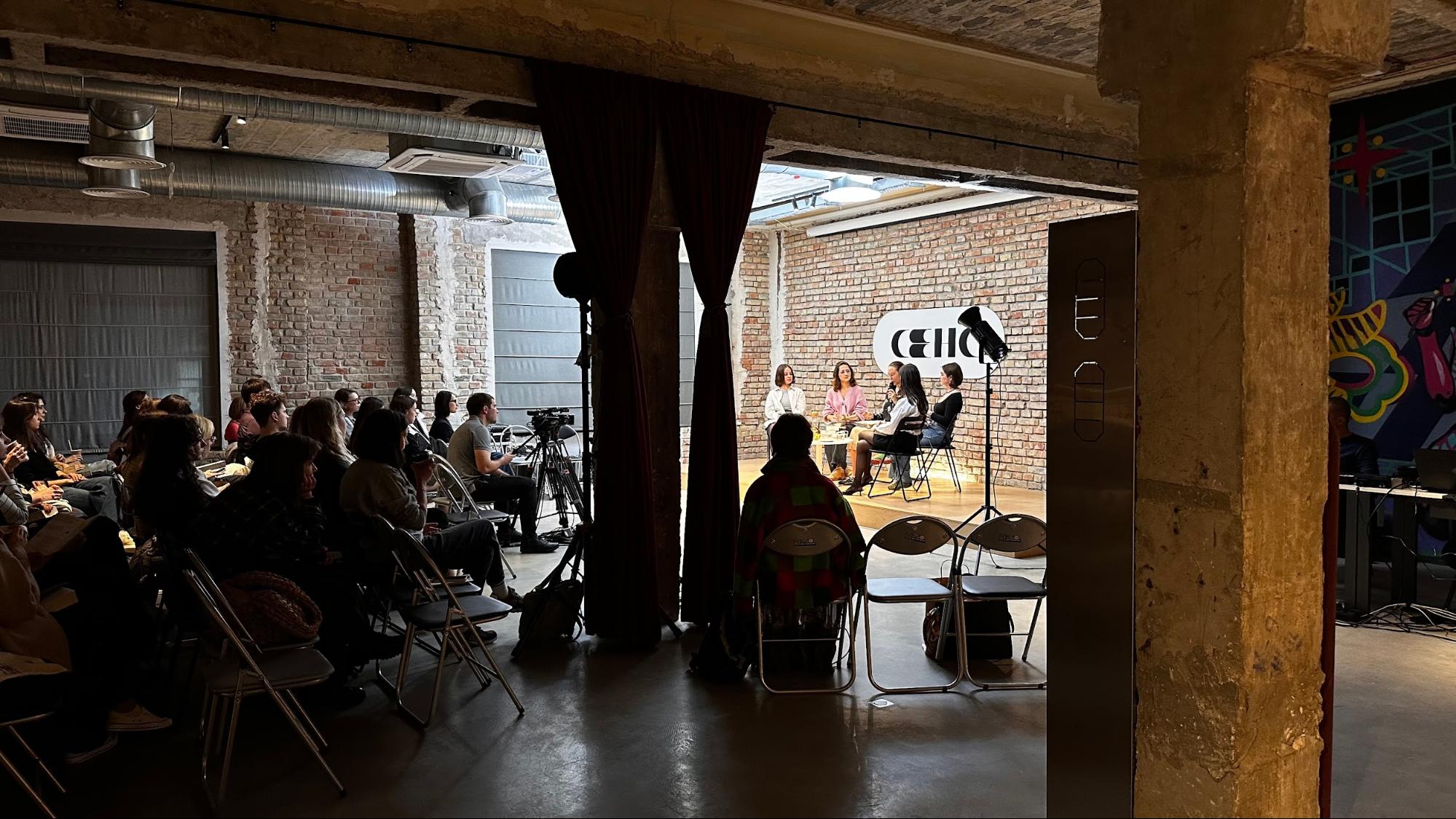
The first discussion meeting was on Iryna Vilde's novel Sisters of the Richynsky Family. Photo: Sens Bookstore
Before the full-scale invasion, Ukrainians mostly read for self-development and leisure. However, during a recent survey, 49% of respondents stated that reading has become a way to preserve themselves, especially during the war. In comparison, 42% noted that reading teaches them to make better decisions, even under challenging circumstances. Moreover, 24% and 21% of participants, respectively, mentioned that reading Ukrainian literature serves as a form of resistance and economic support for Ukrainian culture.
Ukrainian publishers and bookstores play an important role because they continue their work despite the war and become part of the cultural resistance and recovery. One such example is the Ukrainian bookstore "Sens," which opened in the center of Kyiv just before the full-scale invasion. It has evolved into more than just a store selling Ukrainian books — it has become a gathering place for creative individuals and a hub for exchanging ideas. A highlight of the bookstore-café is its book club, a reading project supported by the Ukrainian Institute of Books.
What meanings can book clubs hold? Why are they vital for Ukrainians, and how do they discuss Ukrainian literature at the bookstore? Read more on Rubryka by following the link.
POVTORNO
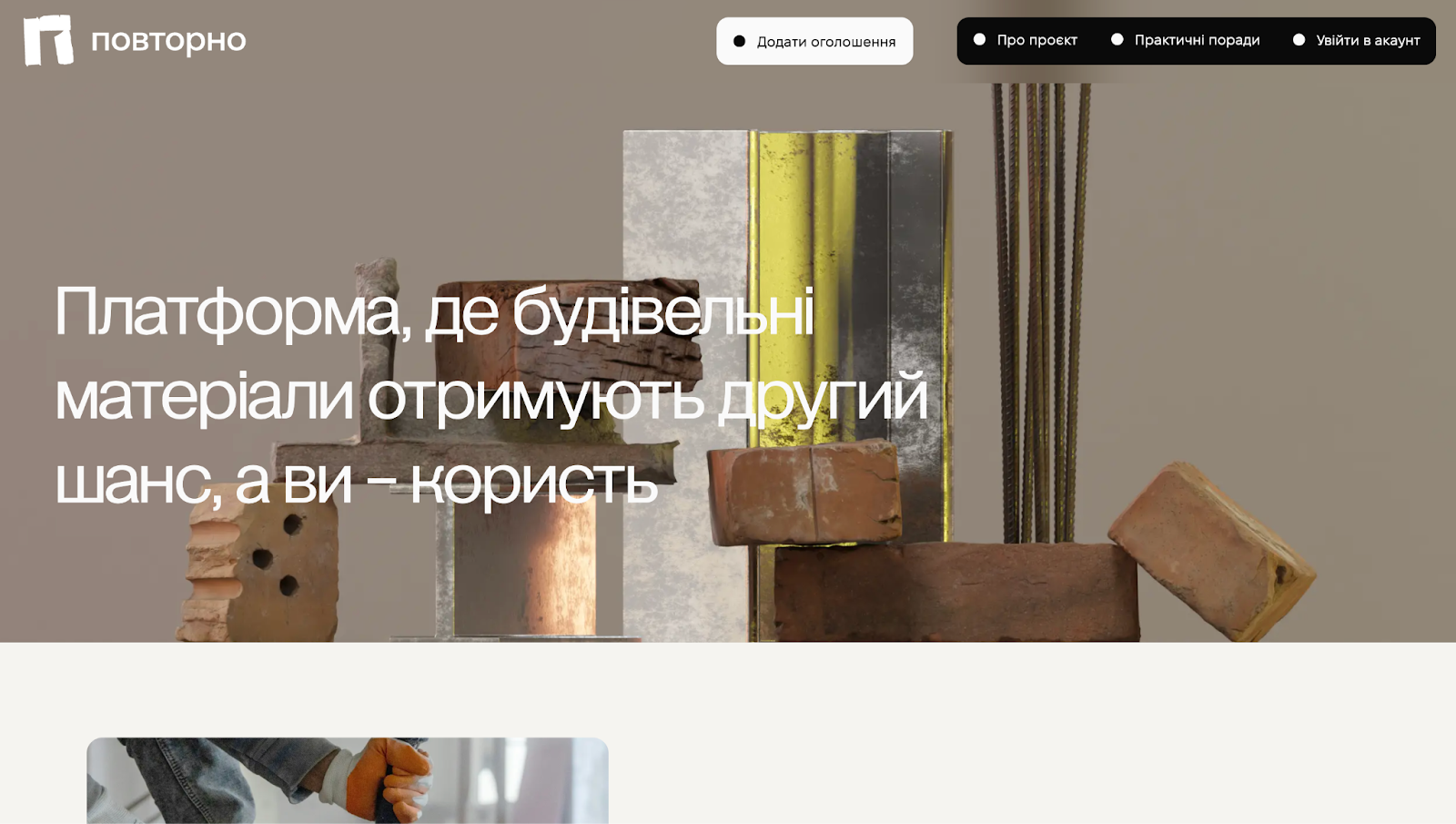
POVTORNO's Home page. Screenshot by ReThink
Ukraine is grappling with a growing problem of construction waste, which, since 2022, has been made worse by the destruction of Russia's war. In peaceful times, construction waste builds up throughout the building process, from extracting raw materials to tearing down buildings. Much of this waste ends up in landfills, harming the environment through land, air, and water pollution. Valuable resources that can be reused, cutting costs, are wasted.
"Considering limited resources and the priority of green reconstruction, we suggest rethinking our approach to secondary materials and seeing them as valuable resources," says ReThink, a circular economy expert organization. Since 2017, the nonprofit has brought together government bodies, businesses, communities, experts, and international partners to work toward a green recovery for Ukraine.
ReThink, with the support of the Embassy of the Netherlands in Ukraine, has launched the online platform POVTORNO — which translates from Ukrainian as "REPEATEDLY" — to streamline green construction, bring together industry players, promote circular practices, and help address the issue of construction waste disposal. Find out more about the project in Rubryka's article here.
How Okhmatdyt Children's Hospital is recovering from Russia's attack
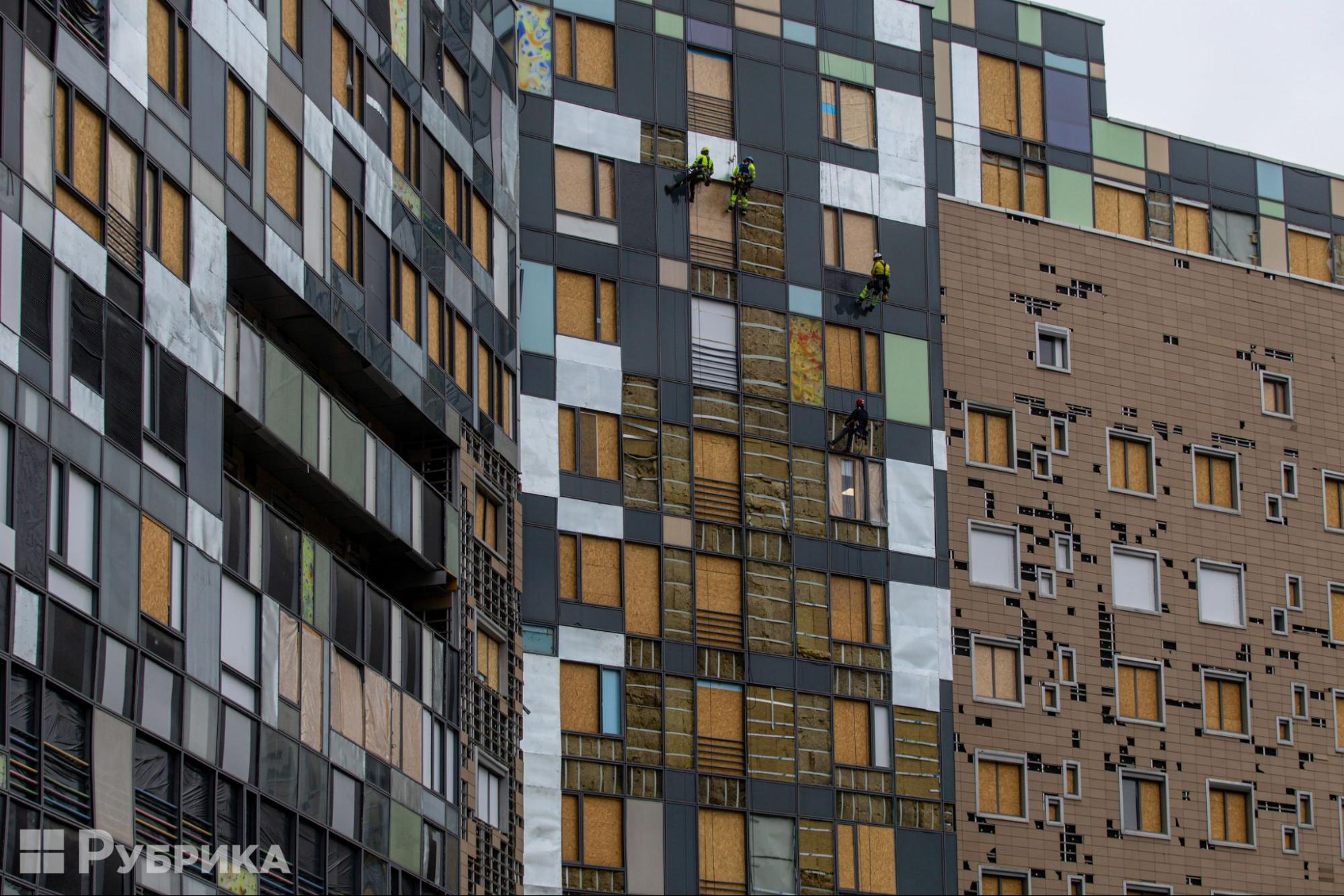
Employees of the contracting organization cover the facade with special plates that prevent cold and water from entering the premises
"We are a hospital of last hope for many patients," says Oleksandr Urin, Acting General Director of Okhmatdyt Children's Hospital, the most state-of-the-art medical facility for children in Ukraine. "Despite the challenges, we are performing the same number of surgeries daily as before the missile strike, but under much more difficult conditions. If we don't insulate the new medical and diagnostic building and restore the damaged infrastructure, we'll be forced to halt patient treatment in this facility during the winter."
Emergency repairs are underway at the damaged building of the Okhmatdyt National Children's Specialized Hospital, which was struck by a Russian Kh-101 missile on July 8. These efforts will ensure that doctors can continue providing specialized care to children in a safe environment throughout the winter. Rubryka has reported on the situation.
HopeRaising Expedition
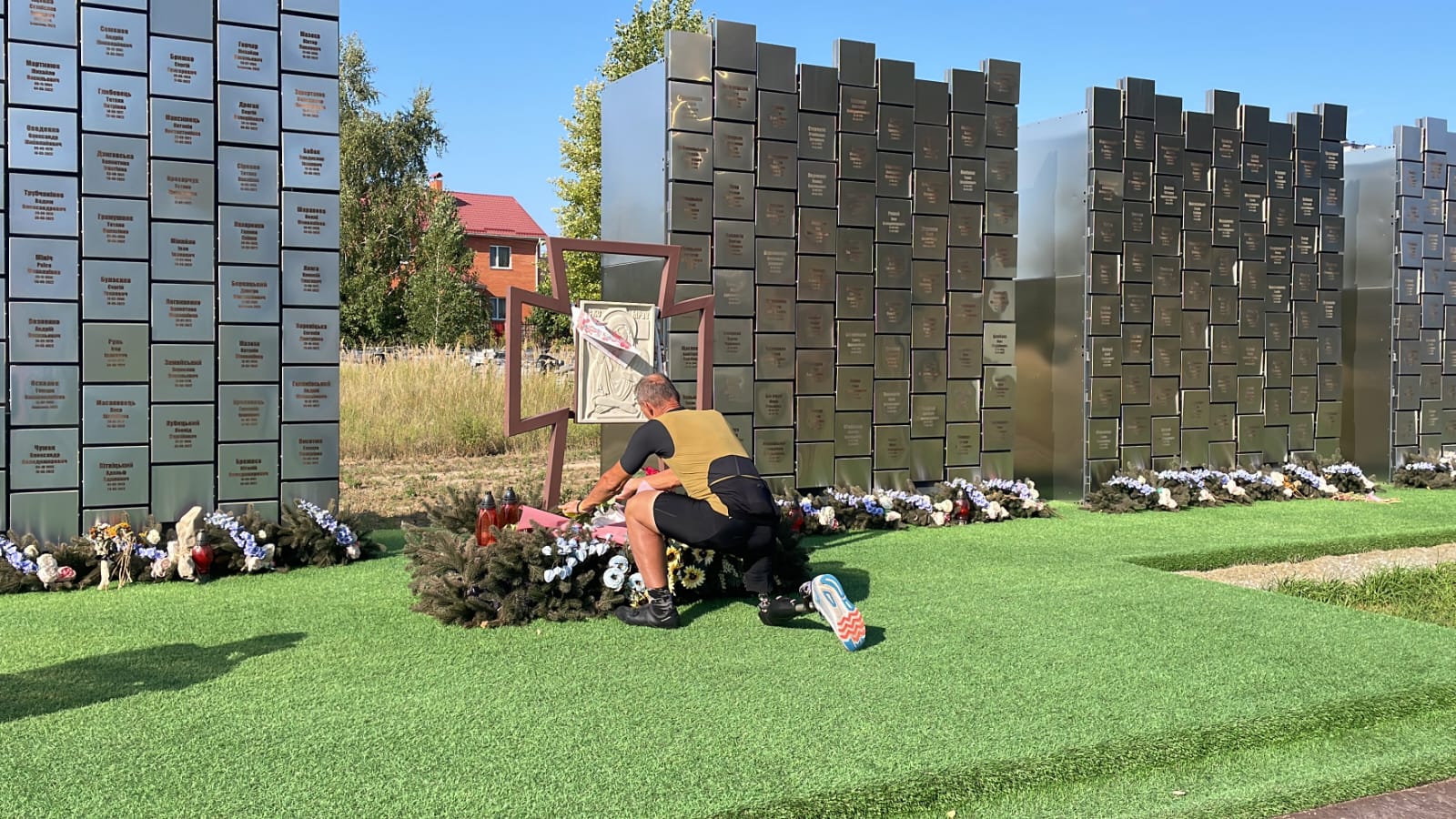
Photo from Jakob Kepka's personal archive
Jakob Kepka, a veteran of the Canadian Army Reserves and the United States Marine Corps, was wounded in the leg over twenty years ago. Despite undergoing six surgeries, his leg was eventually amputated in 2016. Rather than hold him back, this motivated him to keep pushing forward. Today, he rides his bike about 100 kilometers daily, hikes, and rock climbs using a prosthetic leg.
He completed his 1,200 km HopeRaising Expedition charity bike ride for Ukraine to show that disability is not a barrier to an active life and achieving one's dreams. The month-long ride from Krakow to Kyiv began on August 11 and concluded on September 11, 2024.
We asked Yakob about this experience and shared the story here.
Halabuda drone repair
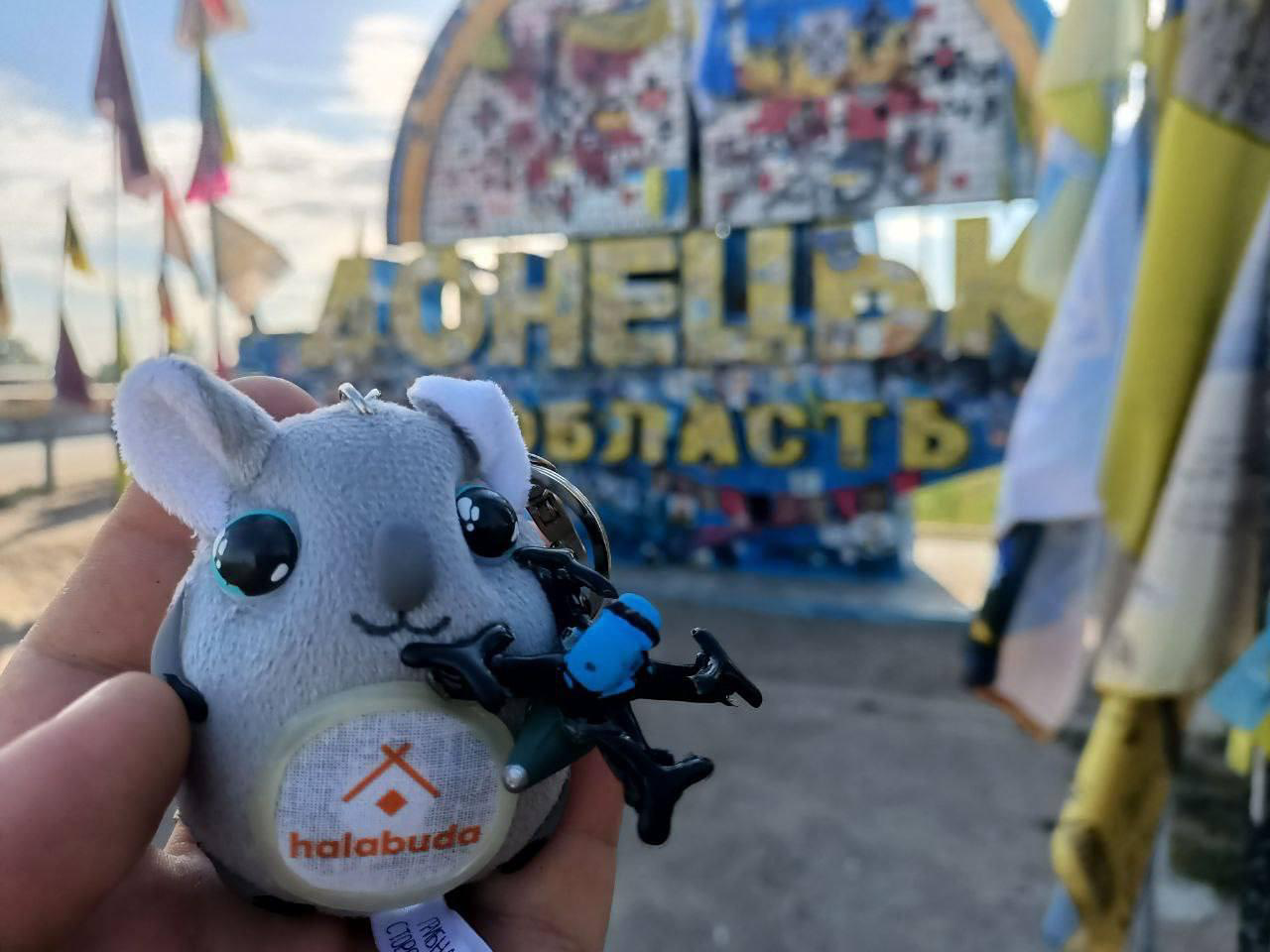
The symbol of the Halabuda drone workshop. Photo from the Halabuda archive
At the front lines, drones have become crucial allies for Ukrainian defenders. They act as the military's eyes, providing quick reconnaissance and enabling fast responses to enemy movements. However, drones endure constant wear and tear on the battlefield — shot down, damaged by debris, or simply worn out from heavy use. With new drones being expensive and hard to acquire in large numbers, maintaining a reliable fleet remains a major challenge.
Repairing drones is far more cost-effective than buying new ones. In Cherkasy, a lovely city in central Ukraine, the Halabuda volunteer hub offers free drone repairs for the army.
In our article here, Rubryka explains how a learning space turned into a drone workshop, what challenges volunteers faced, and how they solved them.
Resource center for volunteers and activists
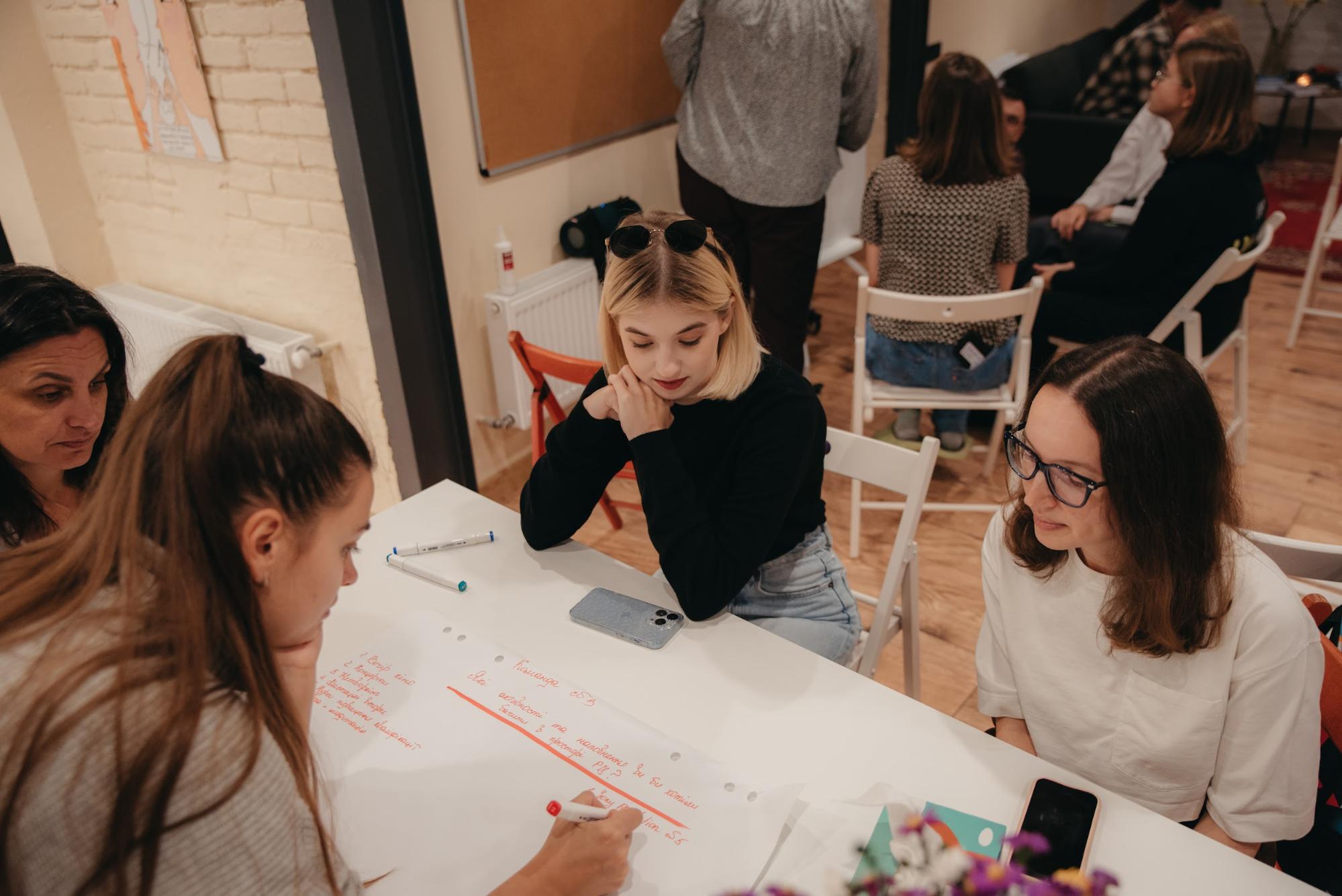
The work at the Resource Center began right at its opening event. Photo: NGO STAN
NGOs and volunteer groups in Ukraine face many obstacles that limit their work. They often struggle with a lack of equipment, workspace, and facilities for meetings and learning, which forces activists to use their valuable resources to meet basic needs and drains their time and energy that could be spent on vital projects.
During wartime, when volunteers play a crucial role in supporting affected communities and aiding the military, this problem becomes even more critical.
Rubryka tells the story of a new initiative from Ukraine's western city of Ivano-Frankivsk that provides volunteers, activists, and nonprofit workers with a space to recharge, strategize, and find the support they need — the STAN Resource Center.
Bridging generations

Photo courtesy of the project archive
Bashtanka, a small town in Ukraine's southern Mykolaiv region, came under fire at the onset of Russia's full-scale invasion in February 2024. The shelling and destruction forced many residents to flee their homes, bringing normal life to a halt. Administrative buildings, shops, and pharmacies were either damaged or closed, making life extremely challenging for those who stayed. Older residents faced particular difficulties — they struggled to use ATMs, reconnect with family, or send messages.
The city's youth quickly adapted to the situation and began helping the older generation master digital skills, making it easier for them to access information and stay connected. One of the first steps was organizing "consultations" for older people in one of the few surviving local stores. This spot became a meeting place for those who remained in Bashtanka, where they shared news, charged their phones, and supported each other in the face of new and frightening realities. Rubryka highlights a youth initiative supporting older generations in the article here.
Ukrainians in Leeds
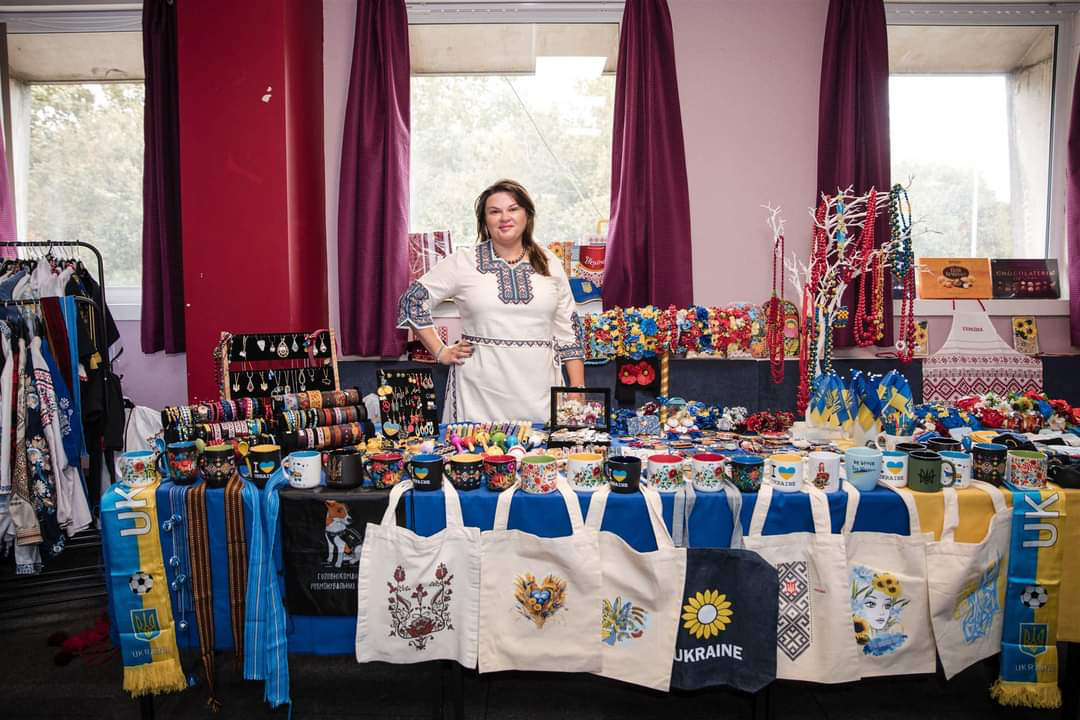
Ukrainian souvenirs were displayed at the 2024 Ukrainian Independence Day celebration. Photo: Leeds Ukrainian Community Association
Building strong Ukrainian diasporas and connecting them with locals to support Ukraine requires strategy and consistent effort. Only with this approach can aid remain stable and impactful. Activists in the UK shared with Rubryka how Ukrainians abroad create an atmosphere of unity and motivation while supporting the Ukrainian Armed Forces and civilians back home.
The Ukrainian community in Leeds, England, formed after World War II, gained momentum after the annexation of Crimea in 2014. The full-scale Russian invasion in 2022 sparked an explosion of volunteer activity.
"From the very first day of the war, we began massive efforts," says Larysa Dumenka, leader of the Leeds Ukrainian Community Association. By February 27, 2022 — just three days into the full-scale war — the community had raised £15,000 for thermal imaging equipment for Ukrainian soldiers. Later, they set up a support center for Ukrainians arriving in Leeds.
Rubryka explains how the organization unites and rallies foreigners to support Ukraine.
What does it take to become a demining specialist?

A deminer at work. Mykolaiv region. Photo: The HALO Trust
The work of sappers and deminers will remain crucial for Ukraine for a long time. They clear fields for farmers, free Ukrainian communities from unexploded ordnance, and teach locals how to safely handle hazardous items, which are plentiful in de-occupied areas. If you've considered working in this field yourself, Rubryka shares how civilians can get involved in humanitarian demining. Read more in our special project.



